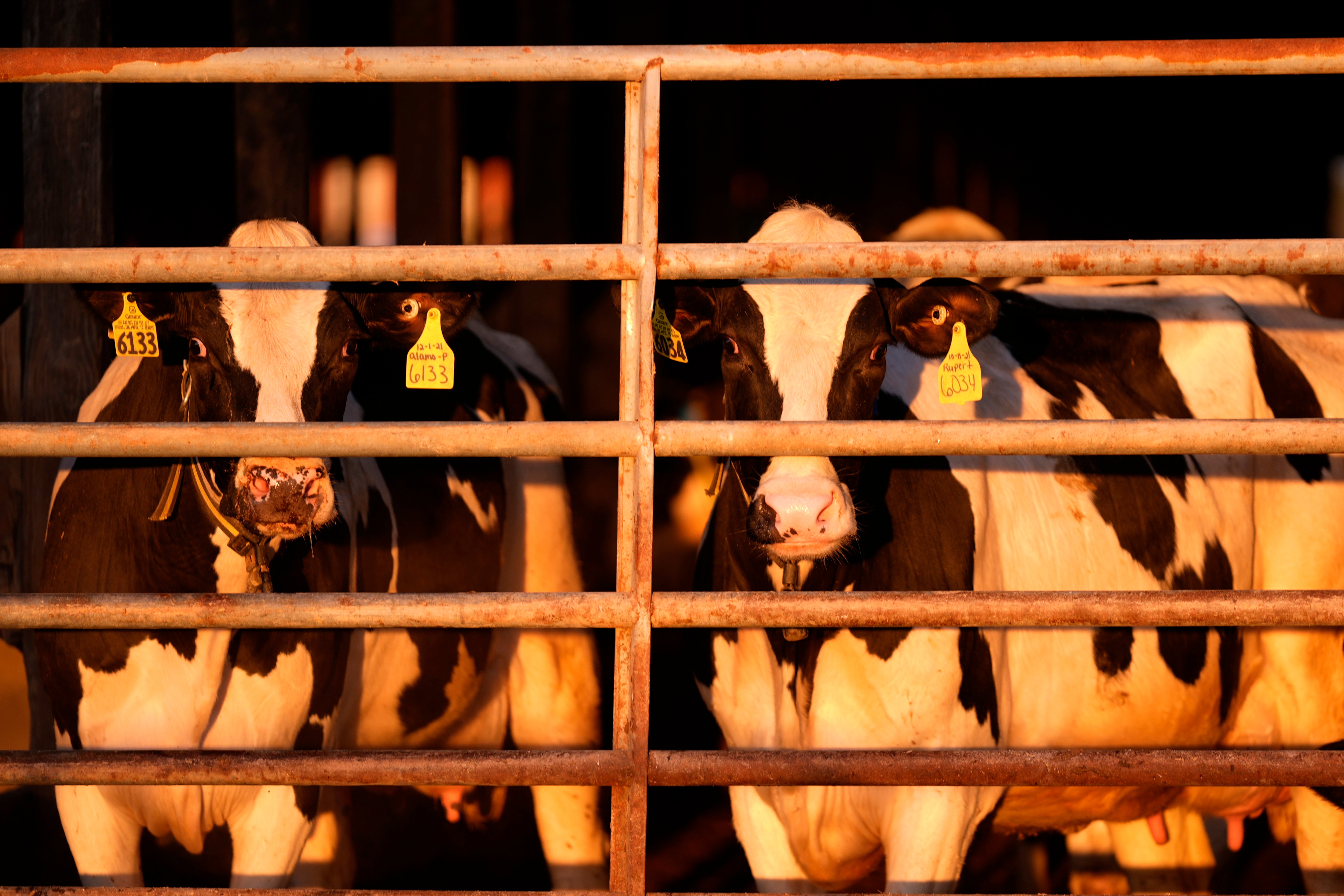US pledges money and other aid to help track and contain bird flu on dairy farms
U.S. officials pledged new spending and other efforts Friday to help track and contain an outbreak of bird flu in the nation's dairy cows

Your support helps us to tell the story
From reproductive rights to climate change to Big Tech, The Independent is on the ground when the story is developing. Whether it's investigating the financials of Elon Musk's pro-Trump PAC or producing our latest documentary, 'The A Word', which shines a light on the American women fighting for reproductive rights, we know how important it is to parse out the facts from the messaging.
At such a critical moment in US history, we need reporters on the ground. Your donation allows us to keep sending journalists to speak to both sides of the story.
The Independent is trusted by Americans across the entire political spectrum. And unlike many other quality news outlets, we choose not to lock Americans out of our reporting and analysis with paywalls. We believe quality journalism should be available to everyone, paid for by those who can afford it.
Your support makes all the difference.U.S. health and agriculture officials pledged new spending and other efforts Friday to help track and contain an outbreak of bird flu in the nation's dairy cows that has spread to more than 40 herds in nine states.
The new funds include $101 million to continue work to prevent, test, track and treat animals and humans potentially affected by the virus known as Type A H5N1, the U.S. Department of Health and Human Services said. And they include up to $28,000 each to help individual farms test cattle and bolster biosecurity efforts to halt the spread of the virus, according to the U.S. Department of Agriculture.
In addition, dairy farmers will be compensated for the loss of milk production from infected cattle, whose supply drops dramatically when they become sick, officials said. And dairy farmers and farm workers would be paid to participate in a workplace study conducted by the USDA and the CDC.
So far, farmers have been reluctant to allow health officials onto their farms to test cattle because of uncertainty about how it would affect their business, researchers have said. Also, farm workers, including many migrant workers, have been reluctant to be tested for fear of missing work or because they didn’t want to be tracked by the government.
The incentives should help increase farmers’ willingness to test their herds, said Keith Poulsen, director of the Wisconsin Veterinary Diagnostic Laboratory, who has been monitoring the outbreak.
“It provides the latitude and capacity to start going in the right direction,” he said.
The new spending comes more than six weeks after the first-ever detection of an avian bird flu virus in dairy cattle — and one confirmed infection in a Texas dairy worker exposed to infected cows who developed a mild eye infection and then recovered. About 30 people have been tested, with negative results, and another 220 are being monitored, according to the CDC.
As of Friday, 42 herds in nine states have confirmed infections in dairy cows. But Agriculture Secretary Tom Vilsack said that the outbreak has not spread more widely.
“It’s still in the same nine states and that’s the most positive thing about where we are," he told reporters.
Remnants of the virus have been found in samples of grocery store dairy products, but tests by the U.S. Food and Drug Administration confirmed that pasteurization, or heat-treating, killed the virus. The USDA found no evidence of the virus in a small sample of retail ground beef.
“The risk to the public from this outbreak remains low,” Health and Human Services Secretary Xavier Becerra said.
—
The Associated Press Health and Science Department receives support from the Howard Hughes Medical Institute’s Science and Educational Media Group. The AP is solely responsible for all content.